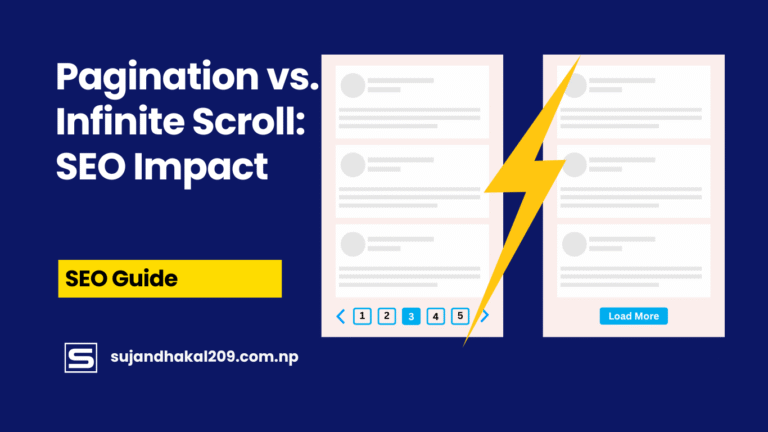Introduction to Schema Markup
What is Schema Markup?
Schema markup is like giving your website a translator that speaks Google’s language. At its core, it’s a type of code (usually in JSON-LD format) that you add to your website to help search engines better understand what your content is about. This code isn’t visible to your regular website visitors, but it helps search engines like Google, Bing, and Yahoo grasp what kind of information your site contains.
Think of it this way: while humans can look at your website and easily tell it’s a bakery that offers wedding cakes, cookies, and custom pastries, search engines need help understanding this. Schema markup provides that clarity. It defines your content in a way search engines can parse — like telling Google, “This is our business name, this is our address, and here are our customer reviews.”
It was created by Schema.org, a collaborative project by major search engines. It covers a wide range of topics — from businesses and people to recipes and books. For local SEO, certain types of schema (like LocalBusiness or Organization) are especially powerful.
Why Schema Markup Matters for SEO
So why does this geeky-looking code matter for your SEO? It’s all about enhancing your presence in search results. Schema markup enables rich results — those visually enhanced search listings with additional information like star ratings, phone numbers, business hours, and even FAQs. And guess what? Listings with rich snippets tend to get more clicks.
From an SEO perspective, schema does three powerful things:
- Improves click-through rates (CTR): When users see star ratings, photos, or FAQs right in the search results, they’re more likely to click your link.
- Boosts local visibility: Schema tells Google where your business is located, what services you offer, and how customers can contact you.
- Strengthens content relevance: When your content is clearly defined with schema, Google is more likely to show it to the right audience.
In short, schema markup gives your content context. Without it, your website is just another page on the web. With it, you’re giving search engines everything they need to understand and promote your local business.
The Connection Between Schema Markup and Local SEO
How Google Uses Schema for Local Search
Let’s get real: Google is obsessed with providing users the most relevant local results. Whether someone searches “best pizza near me” or “emergency plumber in Boston,” Google wants to deliver results that are accurate and hyper-local. Schema markup plays a crucial role in this matchmaking process.
When you implement the right schema on your site, you’re feeding Google key information — your business category, location, opening hours, customer reviews, and more. This gives your business a leg up in local searches, especially in the coveted “Local Pack” (those top three map listings you see on Google).
Even better, schema markup supports features like:
- Map placement
- Knowledge Panel enhancements
- Voice search optimization
- Clickable contact info directly in SERPs
The more structured your site is, the more confidence Google has in showing it to users searching for services in your area. That means better visibility and more foot traffic.
Benefits of Schema for Local Businesses
Here’s the sweet deal for local businesses: schema markup is one of the least utilized yet most impactful tools out there. And it’s free!
Some major benefits include:
- Increased local traffic: More local exposure means more potential customers finding you online.
- Enhanced visibility on SERPs: Rich snippets with reviews, business hours, and address boost your credibility instantly.
- Higher conversion rates: When people can see your business details up front, they’re more likely to call, visit, or make a booking.
- Improved mobile and voice search performance: Schema helps your business show up when users ask Siri or Google Assistant for recommendations.
It’s like giving your business a digital VIP badge. You’re not just on Google — you’re standing out.
Types of Schema Markup Relevant to Local SEO
LocalBusiness Schema
The LocalBusiness schema is a must-have for any business targeting local customers. It’s the foundational type that tells Google, “Hey, I’m a legit business at this exact location.”
Here’s what you can include in LocalBusiness schema:
- Business name
- Address
- Phone number
- Opening hours
- Price range
- Geo-coordinates
- Accepted payment methods
- Reviews and ratings
This markup goes a long way in making your business appear more authoritative and relevant in local searches. And when properly implemented, it increases your chances of showing up in local packs and voice search results.
Organization Schema
While similar to LocalBusiness, the Organization schema is broader. It’s ideal for businesses that operate in multiple locations or have a more generalized presence.
This schema helps highlight:
- Official business name
- Logo
- Website URL
- Social profiles
- Contact information
Using both Organization and LocalBusiness schema together (where appropriate) gives your site layered, hierarchical data that search engines love.
Product and Service Schema
Do you sell stuff or provide services? Then the Product or Service schema is gold.
These markups allow you to specify:
- Product name
- Description
- Price
- Availability
- Service type
- Area served
Why it matters? When customers search for specific items or services near them, your schema-optimized content can appear in featured snippets or even shopping results.
Review and Rating Schema
Social proof sells — period. With the Review or AggregateRating schema, you can showcase customer reviews and ratings directly in search results.
That means:
- Star ratings next to your listing
- A summary of total reviews
- Better trust and clickability
It’s psychological. When people see stars, they associate credibility. Schema lets you leverage that instantly.
Step-by-Step Guide to Implementing Schema Markup
Step 1: Choose the Right Schema Type
Before jumping into code or tools, you’ve got to know what schema fits your business. This is where many folks trip up. If you’re a restaurant, you’ll need the Restaurant schema. A local dental clinic? You’ll go with Dentist, which falls under the broader LocalBusiness category.
Here’s a quick cheat sheet for common local businesses:
- Restaurant –
Restaurant - Plumber –
Plumber - Law Firm –
LegalService - Hair Salon –
HairSalon - Retail Store –
Store
The point? Google loves specificity. The more accurate your schema type, the better it understands your content. This results in a higher likelihood of being featured in rich results and the local pack. If you’re unsure, start with the basic LocalBusiness and expand from there.
Don’t forget — multiple schema types can be added to a single page if relevant, just make sure they don’t conflict with each other.
Step 2: Use a Schema Markup Generator
Unless you’re a coding wizard, manually writing JSON-LD schema might feel like deciphering ancient scrolls. That’s where schema generators come in.
Top tools to use:
- Merkle’s Schema Markup Generator
- TechnicalSEO.com’s Schema Builder
- Google Structured Data Markup Helper
These tools let you input your business info — name, address, opening hours, reviews — and they spit out a clean, structured JSON-LD snippet you can copy and paste into your site’s HTML.
Tips for using generators effectively:
- Be accurate: Double-check your business name, address, and phone number (NAP consistency matters!).
- Add all optional fields: Even if not required, filling them increases your visibility and helps Google paint a better picture.
- Save your schema snippets for future use — they can be reused or adapted for different pages.
Remember, this code isn’t meant to look pretty — it’s for machines. But it does make your site appear much prettier in the eyes of Google.
Step 3: Validate Your Schema with Google’s Rich Results Test
Now that you’ve got your schema code, don’t just slap it on your site and call it a day. First, test it.
Head to Google’s Rich Results Test. Paste in your code or your page URL, and Google will scan it to ensure it’s valid.
What you’re looking for:
- ✅ “Page is eligible for rich results” – this means you’re in the clear.
- ❌ Errors – these could be missing required fields, incorrect formatting, or incompatible types.
If there are warnings, don’t panic. Some warnings are just recommendations (like “missing price range”), while others might prevent your rich results from showing. The goal here is to clean up any red flags before you go live.
You can also use Schema.org’s validator for another layer of testing. Double validation = double confidence.
Step 4: Embed the Schema into Your Website
Once your schema is polished and tested, it’s time to insert it into your website. If you’re using WordPress, this can be super easy with plugins. If not, you’ll do it manually.
Option A: Using WordPress Plugins
- Rank Math
- Yoast SEO
- Schema Pro
These plugins allow you to apply schema to specific posts, pages, or your homepage — no code needed. You’ll simply fill out a few fields in your dashboard.
Option B: Manually Adding Schema
If you’re comfortable with HTML, just copy your JSON-LD script and paste it within the <head> section or at the top of the <body> of your page.
<script type="application/ld+json">
{
"@context": "https://schema.org",
"@type": "LocalBusiness",
"name": "Joe's Pizza",
"address": {
"@type": "PostalAddress",
"streetAddress": "123 Main Street",
"addressLocality": "New York",
"addressRegion": "NY",
"postalCode": "10001",
"addressCountry": "US"
},
"telephone": "+1-212-555-5555"
}
</script>
Be sure to publish and recheck everything after embedding.
Step 5: Monitor and Adjust Based on Search Console Feedback
Schema isn’t a set-it-and-forget-it deal. Like everything else in SEO, it needs monitoring.
After implementation:
- Check Google Search Console
- Head to the “Enhancements” section.
- Look for schema types like Products, LocalBusiness, Reviews, etc.
- Google will show you which pages are eligible and which ones have errors.
- Track changes in your CTR
- If schema is implemented correctly, you should see a boost in impressions and clicks.
- Keep it updated
- Business hours changed? New address? New review? Update your schema to reflect real-time info.
- Watch for Google updates
- Schema standards evolve. What’s valid today may need tweaking tomorrow.
Schema markup is not a one-time task. It’s part of your ongoing SEO health check, like cleaning your car or updating your LinkedIn. Stay on top of it, and Google will reward you.
Tools to Help You Implement Schema Markup
Google Structured Data Markup Helper
This is one of the most beginner-friendly tools Google offers. With the Structured Data Markup Helper, you simply input your website URL or HTML, select the type of schema (like LocalBusiness, Article, Event, etc.), and then highlight content elements right on your page to assign schema tags.
Here’s how it works:
- Go to Google Structured Data Markup Helper.
- Choose your data type (e.g., Local Businesses).
- Paste in your page URL or HTML.
- Highlight different elements like your business name, address, and hours.
- Generate the HTML with schema code embedded.
- Add that code to your website and you’re good to go!
Why it’s great:
- No coding required.
- Quick and visual.
- Directly from Google, so you know it’s reliable.
It’s ideal for small business owners or local marketers who want fast results without digging deep into JSON-LD syntax.
Schema.org Vocabulary
When it comes to structured data, Schema.org is the mother ship. This is where all schema types and properties are defined, updated, and maintained in collaboration with major search engines like Google, Bing, Yahoo!, and Yandex.
Why you should use Schema.org:
- It has every possible schema type imaginable — from dog walkers to dentists.
- Each type comes with a list of properties, definitions, and usage examples.
- It helps you use schema correctly and completely.
If you’re building your own markup from scratch or just validating what a tool gave you, Schema.org is your ultimate reference guide.
Pro tip: Bookmark your most-used schema types (e.g., LocalBusiness, Product, Review) so you can quickly jump back when needed.
SEO Plugins with Schema Support
If you’re using a CMS like WordPress, plugins can simplify everything. Instead of pasting code or fiddling with your theme, you get a clean, user-friendly interface where you can select schema types, enter your info, and let the plugin do the rest.
Top WordPress plugins:
- Rank Math: Arguably the best free plugin for SEO, it offers advanced schema features — including local business schema, review schema, FAQ schema, and more.
- Yoast SEO: Very popular and beginner-friendly. It includes basic schema integrations automatically.
- Schema Pro: A premium plugin with advanced schema support for WooCommerce, local SEO, courses, and more.
Benefits of using plugins:
- No need to mess with code.
- Easily update your info from your WordPress dashboard.
- Integrates with Google Search Console for tracking performance.
Just make sure not to double up — if your theme or multiple plugins are adding schema, it could cause errors. Stick with one reliable plugin and configure it well.
Common Mistakes to Avoid When Using Schema for Local SEO
Using Incorrect Schema Types
This is a common pitfall. Let’s say you’re a freelance photographer but use the Store schema because it sounds more professional. That mismatch can confuse search engines — and confused search engines mean lost opportunities.
Each business type has a schema type that aligns perfectly. If you’re unsure, do a quick search on Schema.org or refer to Google’s guidelines. If you use a vague or incorrect schema, you’re basically waving a red flag at Google.
And don’t copy-paste schema from other websites without editing. Schema is business-specific — make it fit your brand.
Inconsistent NAP (Name, Address, Phone Number)
NAP consistency is a make-or-break factor for local SEO. If your schema says one phone number, your Google Business Profile says another, and your website footer shows yet another — Google won’t know which one to trust.
Here’s what to keep consistent:
- Business name: Exact match across all platforms.
- Address: Use the same abbreviations and formatting everywhere.
- Phone number: Match format (e.g., +1-555-123-4567).
This consistency applies not just to schema, but across your website, citations, directories, and social profiles.
Remember, schema is meant to reinforce your business info — not contradict it.
Ignoring Updates in Schema Standards
Schema.org evolves. Properties change. Some get deprecated. Others get new features.
For example, the priceRange property used to be optional — now it’s highly recommended for local businesses. Google might also start emphasizing new schema types (like FAQPage or HowTo) in future updates.
That’s why it’s crucial to:
- Stay subscribed to SEO blogs or newsletters.
- Regularly check Schema.org for updates.
- Revalidate your schema every few months.
Also, Google Search Console will notify you if something breaks, so don’t ignore those emails.
Schema is a dynamic part of your site. Keep it updated and you’ll stay ahead of the competition.
Real-World Case Studies of Schema Boosting Local SEO
Small Retail Shop Case Study
Let’s say we’re talking about a small family-owned bookstore in Austin, Texas, called PageTurners. They had a decent local presence but were struggling to compete with larger chains and online retailers.
Here’s what they did:
- Implemented LocalBusiness schema on their homepage with accurate NAP data, opening hours, geo-coordinates, and social links.
- Added Product schema for their featured books.
- Included Review schema for customer testimonials on their site.
Results within 60 days:
- Their business started appearing in Google’s local pack for keywords like “independent bookstore Austin” and “best bookstore near me.”
- Click-through rates improved by 38% because of visible review stars and rich snippets.
- Voice search visibility improved, especially when users asked, “What bookstores are open near me now?”
Takeaway: This tiny schema tweak created a big impact. For PageTurners, it was like flipping on a light switch for local visibility.
Local Service Provider Case Study
Now let’s look at Precision Plumbing, a local plumber in Denver. They were stuck on page 2 of search results, even though their reviews were fantastic and customers loved their service.
What changed?
- They used the Plumber schema, a sub-type of LocalBusiness, to specify their services.
- They embedded Service schema for water heater repair, drain cleaning, and emergency plumbing pages.
- They displayed AggregateRating schema on their testimonial section to showcase their 4.8-star rating from over 300 reviews.
Results:
- They hit the Google local pack for “emergency plumber Denver” in just three weeks.
- Their calls increased by 52% in one month.
- Even their “Service Area” schema helped them show up in nearby towns like Aurora and Lakewood.
Takeaway: Schema gave Precision Plumbing a structured voice that search engines understood. It was like handing Google a detailed resume that said, “Here’s what we do, here’s how well we do it, and here’s where we do it.”
FAQs About Schema Markup in Local SEO
1. What’s the difference between LocalBusiness and Organization schema?
LocalBusiness is more specific and intended for businesses with a physical location serving a local area. Organization is broader and used for any type of business or group. If you’re running a storefront, use LocalBusiness.
2. Do I need to be a developer to implement schema markup?
Not at all! Tools like Google’s Markup Helper, Schema generators, and WordPress plugins make it super easy. You don’t need to write code — you just need accurate info and a bit of copy-paste.
3. Can I use multiple schema types on one page?
Yes, as long as they’re relevant and don’t conflict. For example, you can use LocalBusiness, Review, and Product schema together if they describe different aspects of your business.
4. Will schema markup improve my rankings directly?
Schema doesn’t directly influence your ranking like backlinks or content quality do. But it enhances your listing with rich results, which leads to higher CTRs — and that can positively influence your SEO over time.
5. How long does it take for schema changes to reflect in search results?
It depends. Google can pick up changes in a few days to a couple of weeks. Use Google Search Console to monitor if your rich results are eligible and being shown.
Conclusion
Schema markup isn’t just some technical SEO gimmick — it’s your secret weapon for owning the local search space. From increasing visibility to attracting clicks and improving credibility, it does more than most local businesses realize.
When you add schema to your website, you’re giving Google a direct and detailed insight into who you are, where you’re located, and why people should choose you. And in today’s hyper-local search environment, that edge is priceless.
So whether you’re running a cozy coffee shop or managing a high-end law firm, don’t skip schema. Use the right tools, follow best practices, and keep your data consistent. Do this right, and local customers won’t just find you — they’ll choose you.





